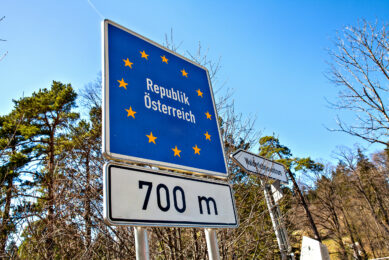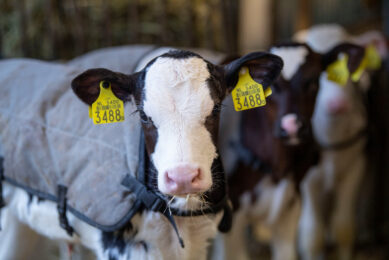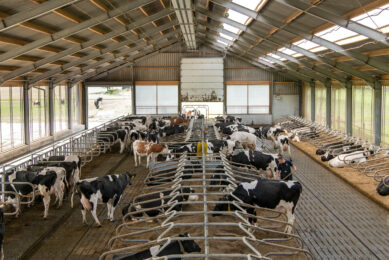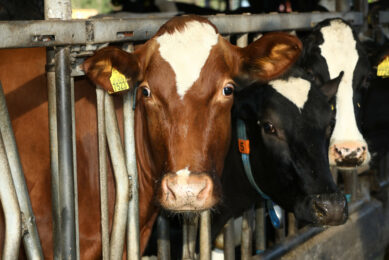New measures to protect dairy herds against bluetongue in the UK
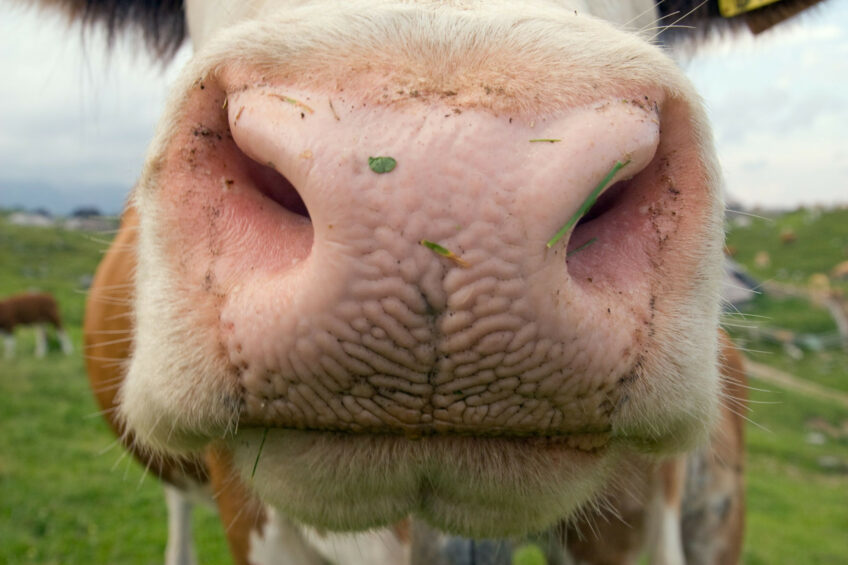
Permits allowing the use of 3 unauthorised BTV-3 vaccines in the UK, where a licence is in place, have been issued by the UK’s Department for Environment, Food and Rural Affairs (Defra).
Defra said that available licences to allow use will include geographically targeted licences, initially in counties at high risk of bluetongue, including Norfolk, Suffolk, Essex, Kent and East Sussex.
Not preventative
Defra has stressed that, unlike other BTV vaccines, these 3 vaccines are suppressive, nor preventative. This means they will not prevent animals from being infected or being infectious, although they may reduce the clinical signs experienced.
Therefore, all movement controls and trade restrictions in place will still apply to vaccinated animals. Farmers will need to contact their vet if they want to use any of the available BTV-3 vaccines.
It can be administered by the farmer provided a medicine record is maintained and made available for inspection. Animals must be permanently marked with official IDs.
Rising cases of bluetongue
Ele Brown, deputy UK chief veterinary officer, said the decision had been taken in light of rising numbers of cases: “As the number of bluetongue cases continues to rise in England and northern Europe, we are taking further action to extend the restriction zone to mitigate the spread of the disease.
“Whilst we appreciate restrictions have an impact, it’s vital all farmers and keepers within bluetongue control zones adhere to the restrictions and only move animals when it’s absolutely essential to prevent the disease spreading to their herds.
“We are committed to working with everyone affected and urge people to report livestock they suspect have the disease. We will continue to keep control zones under review.”
Jenny Stewart, Animal and Plant Health Agency chief executive, added that it was important to monitor livestock and take up free testing where necessary: “Scientists, vets and field teams from the Animal and Plant Health Agency are working hard to help tackle bluetongue virus and ensure farmers are kept up to date and supported.”
Availability of bluetongue vaccines
Tom Bradshaw, NFU president, said the announcement of emergency authorisation for the BTV-3 vaccines was an important step: “We must now ensure there is enough availability for livestock farmers in the high-risk area to use if they wish.”
While the vaccines make no claim to reduce infectivity, Bradshaw said they appear to reduce mortality and the severity of clinical signs. “So while they won’t stop animals from becoming infected, they could reduce the impact of the disease on individual animals and therefore provide an animal welfare benefit,” he said.
The vaccines are being used in mainland Europe against BTV-3 and have been approved in the EU for emergency use.
The announcement was part of a wider package of measures announced by the government:
- Following the identification of further bluetongue BTV-3 cases close to the edge of the Restricted Zones, the 2 previous Restricted Zones have now been merged and extended to create 1 large zone in the East of England, running from East Riding in Yorkshire to Kent.
- This means the new Restricted Zone now also covers all of Lincolnshire, Cambridgeshire, Bedfordshire, Hertfordshire, Greater London, Surrey and West Sussex. An interactive map shows Restricted Zones in detail.
- East Riding and Lincolnshire have also been designated high-risk counties, which means that keepers will also be eligible to vaccinate their animals using the new general licence.
The British Cattle Veterinary Association said 70 premises had been confirmed as having 1 of more cases of BTV-3. It said in a statement that due to the short time period of use of the vaccines in the Netherlands, Belgium, France and Denmark, it had no information on efficacy or duration of immunity and it could not say if one vaccine performed better than another.
“The decision of whether immediate vaccination for BTV-3 is appropriate for a particular farm depends on many factors. It is important to fully discuss all of the issues around BTV-3 risk, farm circumstances and what we know about the vaccine’s claims and possible side-effects to assess if vaccination is right for that farm.”
Join 13,000+ subscribers
Subscribe to our newsletter to stay updated about all the need-to-know content in the dairy sector, two times a week.



